Ruth Downie - Tabula Rasa
Здесь есть возможность читать онлайн «Ruth Downie - Tabula Rasa» весь текст электронной книги совершенно бесплатно (целиком полную версию без сокращений). В некоторых случаях можно слушать аудио, скачать через торрент в формате fb2 и присутствует краткое содержание. Год выпуска: 2014, ISBN: 2014, Издательство: Bloomsbury USA, Жанр: Исторический детектив, на английском языке. Описание произведения, (предисловие) а так же отзывы посетителей доступны на портале библиотеки ЛибКат.
- Название:Tabula Rasa
- Автор:
- Издательство:Bloomsbury USA
- Жанр:
- Год:2014
- ISBN:9781620403235
- Рейтинг книги:5 / 5. Голосов: 1
-
Избранное:Добавить в избранное
- Отзывы:
-
Ваша оценка:
- 100
- 1
- 2
- 3
- 4
- 5
Tabula Rasa: краткое содержание, описание и аннотация
Предлагаем к чтению аннотацию, описание, краткое содержание или предисловие (зависит от того, что написал сам автор книги «Tabula Rasa»). Если вы не нашли необходимую информацию о книге — напишите в комментариях, мы постараемся отыскать её.
Tabula Rasa — читать онлайн бесплатно полную книгу (весь текст) целиком
Ниже представлен текст книги, разбитый по страницам. Система сохранения места последней прочитанной страницы, позволяет с удобством читать онлайн бесплатно книгу «Tabula Rasa», без необходимости каждый раз заново искать на чём Вы остановились. Поставьте закладку, и сможете в любой момент перейти на страницу, на которой закончили чтение.
Интервал:
Закладка:
There was movement in the dark spaces behind the wicker partitions, which were hung with furs and painted shields. Above them, over shelves filled with what looked like apples, he caught the glint of metal slung under the thatch. Not his own sword but curved blades. Farm tools with sharp edges.
Figures emerged from the hidden parts of the house and padded across the bracken-strewn floor to gather around the fire. Ruso blinked, feeling his eyes beginning to smart. The smoke from the hearth was making a poor job of finding its way out through the thatch. He counted four more adults and several children. All staring directly at him. Finally another figure emerged. He was happier than usual to see that pregnant belly and welcoming bosom below a smiling face. Try as he might, it was impossible to note Virana’s features in any other order.
“Grandfather Senecio,” announced Tilla in her own language, stepping forward to address the figure leaning on the stick. “This is Gaius Ruso of the Petreius family from southern Gaul. He is a healer in the pay of the emperor’s Twentieth Legion.”
Ruso bowed.
“He is a man of honor, and I have chosen him to be mine,” added Tilla, as if she were challenging anyone to argue.
The strength of the voice that replied, “Good evening, Roman,” took him by surprise. Perhaps the man was not as ancient as he looked. “I am Senecio of the Corionotatae.”
The introductions that followed seemed oddly formal in the murk of a round house smelling of smoke and sheep and whatever was in the pot, but the man betrayed no obvious sign of craziness. Conn was now standing by his father’s chair. He had the same strong features and curly hair as his father, but although he was not gray, the sour downturn of his mouth made him look almost as old. His young wife, still unsmiling, was called Enica. Branan grinned at Ruso through the wet snakes of hair, revealing dimples and a gap between his front teeth. Ruso decided he liked Branan.
The names of the rest-the man with one eye, the tall thin man, the woman with the thick brows who lisped when she spoke, the one with nothing remarkable about her, the gaggle of wide-eyed children-were swept out of his memory by the thought that the adults only had to reach up to seize scythes and pitchforks and . . .
. . . And he must pull himself together. They probably always looked fierce. Who wouldn’t in a place like this? Besides, it was surely bad etiquette to murder guests, even in Britannia.
After the introductions there was a lot of shuffling about as everyone settled themselves around the hearth. Conn’s wife, still giving the impression that she was not enjoying this, placed him next to Tilla. The animal pelt covering the bench tickled the backs of his legs. The bench rocked as Virana lowered herself down onto the other end of it.
Senecio said, “We hear you rescued a man from the fallen rocks.”
“Yes.”
“First the sky is against you with the rain, and now the earth.”
Ruso hoped the old man wasn’t going to veer off into craziness. Or religion. There were stories of him yelling at thunderstorms as well as singing to trees. “It is good of you to invite us.”
“Darlughdacha is very much like her mother,” said Senecio, reaching for a cup made of turned wood. “We have been recalling good friends long gone. Her mother and I were very close at one time.”
It felt strange to hear Tilla called by her native name. As though this man had some sort of ancient claim upon her. Meanwhile Enica scowled at Tilla as if looking like one’s mother were some sort of crime.
The man continued. “Friends are always welcome at my hearth.”
“And at ours, Grandfather,” put in Tilla. “When we have one.”
“Yes,” said Ruso again, putting an arm around his wife in a gesture that he hoped looked protective, and not as if he were clinging to her for support.
“Soldiers have no homes,” Conn said, looking round at the household as if he were explaining something new. “This is why they do not understand what it is to turn people off their land.”
Tilla said, “My husband’s family has a farm in the south of Gaul. His brother looks after it.”
“The south of Gaul?” Senecio raised one white eyebrow. “I hear the land there is very dry in the summer.”
“There is not much rain,” Ruso agreed.
“How many cows do you have?”
“Just the one.” Aware that the Britons would think he was a pauper, he added, “We have a lot of vines and olives. Some . . .” He turned to Tilla for the native word, then realized there wasn’t one. “Some peaches,” he said, “and a little wheat.”
“Wine and oil,” Senecio mused. “You can feed a family on these things?”
“We sell them.” Not very profitably.
“Ah.” It was Senecio’s turn to explain to his audience. “The Romans have to use coins,” he explained, “because they cannot feed themselves on what they grow.”
Conn said, “This is why they come here wanting our good land to grow real food on.”
Ruso felt Tilla’s thigh press up against his own. He wanted to tell her not to worry. If they wanted to score points at his expense, he would put up with it. It was only one evening, and if these people were gullible enough to believe that he had been lured away from the sunny vineyards of southern Gaul by windswept grass and reedy bogs, nothing he said would change their minds.
He waited for the next challenge, but instead Senecio said, “You have a good understanding of our tongue, healer. This is not usual in a foreigner.”
Ruso put a hand on Tilla’s knee. Perhaps they really were clinging to each other for support. “I have a good teacher.”
“That is as well. We do not speak Latin in this house.”
“Never mind!” put in a cheery voice from the other end of the bench. “Now my mistress is here, she can teach you!”
Tilla hissed, “Sh!” and Virana subsided with, “But I was only saying-”
“Sh!”
Ruso was fairly sure that there was a difference in British between We do not speak Latin and We cannot speak Latin . Perhaps Senecio too wanted to lay down some boundaries.
Senecio handed his cup to Enica. As she poured the beer, he reached back and squeezed her thigh.
This was unexpected. Either Ruso had made the wrong assumption about Enica and Conn, or he had at last found evidence of Julius Caesar’s assertion that the Britons shared their wives. Was that what very traditional meant? He hoped he wasn’t expected to share his own wife. Or, indeed, anyone else’s.
Senecio took a gulp and held the cup out. Enica, whom Ruso no longer knew how to place, took it and brought it across to him. Ruso nodded his thanks. As he drank he could hear Virana whispering, “Why don’t they want to learn Latin?”
Tilla murmured, “I think they already know some.”
“Then why will they not speak it to the master?”
It was Tilla’s turn with the beer. When the cup had gone back to the old man, Ruso heard, “Because they want to stay Corionotatae.”
“But they are Corionotatae.”
“They don’t want the children to forget where they come from.”
“But how will they get by without-”
Tilla’s “Sh!” almost covered the sound of Senecio’s announcement that it was time to eat and that their guest should be served first.
Enica stepped forward again.
Virana hauled herself up from the bench. “I’ll do it!”
Enica paused, ladle in hand, and looked to the old man for instruction.
Tilla seized Virana by the wrist. “Sit down!”
“But you said I was to help!”
“Enica will do it.”
Virana pushed her hair out of her eyes and slumped back down. “I never know what helping I’m supposed to do and what other people are there for.”
Читать дальшеИнтервал:
Закладка:
Похожие книги на «Tabula Rasa»
Представляем Вашему вниманию похожие книги на «Tabula Rasa» списком для выбора. Мы отобрали схожую по названию и смыслу литературу в надежде предоставить читателям больше вариантов отыскать новые, интересные, ещё непрочитанные произведения.
Обсуждение, отзывы о книге «Tabula Rasa» и просто собственные мнения читателей. Оставьте ваши комментарии, напишите, что Вы думаете о произведении, его смысле или главных героях. Укажите что конкретно понравилось, а что нет, и почему Вы так считаете.
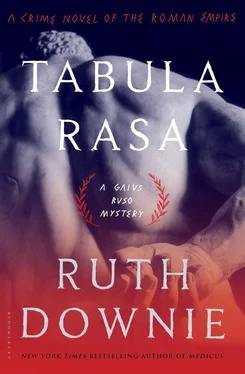


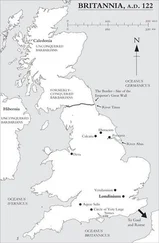
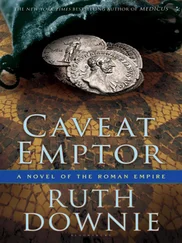
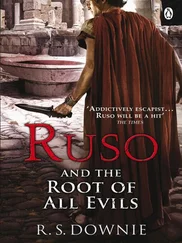
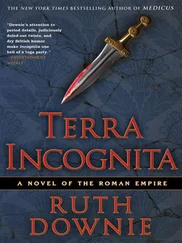
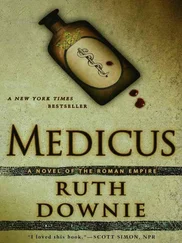
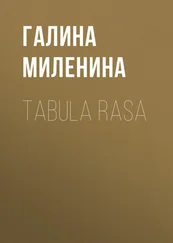
![Антон Архангельский - Tabula Rasa - Исходная точка [калибрятина]](/books/392380/anton-arhangelskij-tabula-rasa-ishodnaya-tochka-k-thumb.webp)


